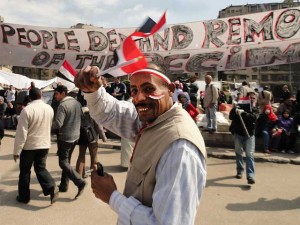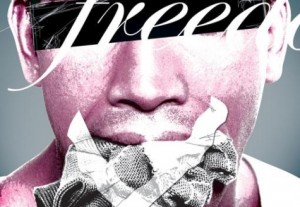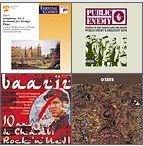 Here, somewhat late, is the Scholars at Risk Media Review. The delay is my fault, due to a busy weekend and Monday. I apologize.
Here, somewhat late, is the Scholars at Risk Media Review. The delay is my fault, due to a busy weekend and Monday. I apologize.
The Scholars at Risk media review seeks to raise awareness about academic freedom issues in the news. Subscription information and archived media reviews are available at here. The views and opinions expressed in these articles are not necessarily those of Scholars at Risk.
——————————————————-
Scholars at Risk calls for letters: Bahraini professor re-imprisoned
Scholars at Risk, 3/18
Tennessee Lawmaker Wants Student Protesters Punished
Quick Takes, Inside Higher Ed, 3/18
Bahrain: University students attacked as violence escalates
Education International, 3/17
Dalhousie medical school to sell Saudis 10 seats
James Bradshaw, The Globe and Mail, 3/17
Iranian university lecturer banned from teaching after publishing critical articles
Network of Education & Academic Rights, 3/16
Continue reading
Tag Archives: democracy
Academic Freedom Media Review, March 5-11, 2011
 Compiled by Scholars at Risk
Compiled by Scholars at Risk
The Scholars at Risk media review seeks to raise awareness about academic freedom issues in the news. Subscription information and archived media reviews are available at here. The views and opinions expressed in these articles are not necessarily those of Scholars at Risk.
Presidential duress: fears for Belarusian academic freedom
Colin Graham, Times Higher Education, 3/10
CHINA: Unrest fears prompt alert at universities
Yojana Sharma, University World News, 3/10
Virginia Supreme Court Will Hear Appeal of Climate-Papers Case
The Chronicle of Higher Education, 3/10
Continue reading
SAR Academic Freedom Media Review: 26 February – 4 March 2011
 The Scholars at Risk media review seeks to raise awareness about academic freedom issues in the news. Subscription information and archived media reviews are available here. The views and opinions expressed in these articles are not necessarily those of Scholars at Risk.
The Scholars at Risk media review seeks to raise awareness about academic freedom issues in the news. Subscription information and archived media reviews are available here. The views and opinions expressed in these articles are not necessarily those of Scholars at Risk.
Censorship or a Mirage?
Steve Kolowich, Inside Higher Ed, 3/4
The man from Kyrgyzstan
Corydon Ireland, Harvard Gazette, 3/3
‘Suspect’ Offa letter threatens sector’s freedom
Rebecca Attwood, Times Higher Education, 3/3
Academic Freedom and the Corporate University
Bill Gleason, The Chronicle of Higher Education, 3/3
Continue reading
Budget Cuts and the National Community
I learned a lot about our nation’s history and the natural world this way, it seems like as much as I did in school. I don’t remember being taught about Booker T. Washington before college. That’s not to say I wasn’t, but I don’t remember it like I do the visit to his birthplace. We must have learned about Thomas Jefferson, but I don’t remember that, either and my virtual obsession with him sprang out of a family visit to Monticello. While visiting the Smoky Mountains I was first exposed the the tragedy of the Native Americans and the horrors of incidents like the Trail of Tears. Most of these parks had not entry fee, paid for entirely with tax dollars. That meant that we could and would, explore something on on a whim. If it was a rainy day and we had planned to do something outside, we could tour a historic mansion, instead. In addition to the National Parks and Historic Places, there was a whole other network of state parks and sites operated by non-profits that were also free.
More recently an increasing percentage of these sites have imposed an entry fee. People want low taxes, budgets are small, and government at all levels from local to national is practicing austerity. Fee for service became a model for a lot of what government does in the 1980s, and it has been that way since. It makes sense on a certain level. Why should those of who never have any intention of visiting one of these sites pay for their upkeep and for providing services there? In fact, these properties are part of our national heritage. We, as a people, have decided that these places are an important part of our history and they need to be preserved. They are monuments that need to be visible to our fellow citizens and the world to remind us of our common heritage and who we are as a people. The White House has offered to cut $105 million from the budget of the National Park Service, and the Republican’s want more.
Continue reading
Academic Freedom Media Review, February 19-25, 2011
 The Scholars at Risk media review seeks to raise awareness about academic freedom issues in the news. Subscription information and archived media reviews are available here. The views and opinions expressed in these articles are not necessarily those of Scholars at Risk.
The Scholars at Risk media review seeks to raise awareness about academic freedom issues in the news. Subscription information and archived media reviews are available here. The views and opinions expressed in these articles are not necessarily those of Scholars at Risk.
YEMEN: Student protests gather strength after deaths
Ahmed Mohamoud Elmi, University World News, 2/25
Anti-Union Bill Passes Wisconsin Assembly
The Chronicle of Higher Education, 2/25
Saudi Intellectuals Demand Reforms
The New York Times, 2/24
Continue reading
Revolution in the Arab World: Why We Can't Just Stand Aside
It is amazing and inspiring to watch these demonstrations! It has been horrifying and shocking to watch the response of the Libyan regime!
It is considered naive to suggest that foreign policy should be based on principle. We are told it is necessary to be Machiavellian in safeguarding our national interest, and in the realm of foreign policy, realpolitik often trumps principle. I disagree. Perhaps I am, indeed, naive, but I believe that democracy, with protection for the rights of the minorities, is a principle that trumps almost all, and our policy ought to reflect that.
In the current wave of peaceful democratic revolutions sweeping the Arab world, US support of the citizen demonstrators has been slow and tepid. This in spite of the fact that sticking to our principles and unequivocally supporting the pro-democracy demonstrators is what is in our best economic and strategic interest. To do otherwise is a risky strategy, a strategy that, should it not go the way proponents believe, will have grave consequences.
Continue reading
Academic Freedom Media Review, February 5 – 11, 2011
 The Scholars at Risk media review seeks to raise awareness about academic freedom issues in the news. Subscription information and archived media reviews are available at here. The views and opinions expressed in these articles are not necessarily those of Scholars at Risk.
The Scholars at Risk media review seeks to raise awareness about academic freedom issues in the news. Subscription information and archived media reviews are available at here. The views and opinions expressed in these articles are not necessarily those of Scholars at Risk.
Universities must safeguard intellectual vitality
Andreas Hess, Irish Times, 2/10
Presidential duress: fears for Belarusian academic freedom
Colin Graham, Times Higher Education, 2/10
Travel Ban Extends to Family
Mihray Abdilim and Joshua Lipes, Radio Free Asia, 2/10
Faculty Group at U. of Puerto Rico Joins Students on Strike
The Chronicle of Higher Education, 2/10
The Beck-Piven Controversy
Peter Wood, The Chronicle of Higher Education, 2/10
Continue reading
Egypt Decides! Let's Stand Back for a While

Saturday, 12 February 2011, Day 1 Freedom - Victory Tahrir Square, Photo by Darla Hueske, Creative Commons license, Some rights reserved
Fortunately, this wave has not caused the death and destruction tidal waves usually do, because it is the people themselves who are the wave, and it is the elite who are being swept away, not in a bloody coup, but through real people power. Final costs have yet to be assessed. People were jailed and others killed, but violence and destruction to property have been minimal. The police were brutal and ruthless and far too many were killed, but protests continued and the police disappeared quickly. After that, the one significant effort of Mubarak loyalist to crack heads, backfired terribly.
Most Americans are excited by this wave of democracy and have an innate tendency to support it. Others got very nervous when the wave hit Egypt. What happens if the Muslim brotherhood takes over? There are even voices who get far to much airplay in the media and too much ink in the press who say that people in the region are incapable of self governance and need strong arm leadership. The most looney voice has to be Glenn Beck who fears Mubarak’s fall will open the door to a Islamist Caliphate that will spread until it meets and joins forces with a Chinese-led “red” wave on a quest for world domination.
Continue reading
Academic Freedom Media Review, January 29 – February 4
 Compiled by Scholars at Risk
Compiled by Scholars at Risk
Scholars at Risk would like to draw special attention to a country that has not recently received extensive coverage in the weekly media review, Venezuela. Recent attempts to enact significant reforms regarding higher education raise questions about academic freedom and university values in the region. We would like to highlight the following two articles written by a professor of sociology at a university in Venezuela.
VENEZUELA: Academic freedom under threat
Orlando Albornoz, University World News, 1/30
University Values Bulletin, January 2011
The Scholars at Risk media review seeks to raise awareness about academic freedom issues in the news. Subscription information and archived media reviews are available at here. The views and opinions expressed in these articles are not necessarily those of Scholars at Risk.
Managerial era ‘threatens’ academic freedom
Matthew Reisz, Times Higher Education, 2/3
Scientist’s Criticisms of Colleague’s Research Held to Be Protected Speech
The Chronicle of Higher Education, 2/3
Continue reading
Academic Freedom Media Review, January 22-28
 The Scholars at Risk media review seeks to raise awareness about academic freedom issues in the news. Subscription information and archived media reviews are available here. The views and opinions expressed in these articles are not necessarily those of Scholars at Risk.
The Scholars at Risk media review seeks to raise awareness about academic freedom issues in the news. Subscription information and archived media reviews are available here. The views and opinions expressed in these articles are not necessarily those of Scholars at Risk.
Purge or Quality Control?
Dan Berrett, Inside Higher Ed, 1/28
University dispute causes a crisis of credibility /
Shirley Brooks, Mail and Guardian, 1/28
Iraqi Academics Come Together to Debate Future of Higher-Education System
Ursula Lindsey, The Chronicle of Higher Education, 1/28
Arab Scholars, Politicians and Activists Issue Appeal for Human Rights and Democracy in the Arab World
Reuters, 1/27
Continue reading


